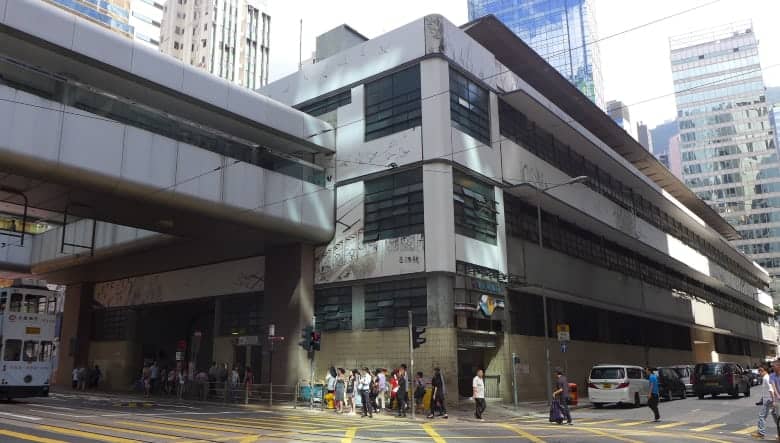 In Mingtiandi’s latest roundup of regional news headlines, a local developer secures the rights to operate a historic Hong Kong market, ESR signs up a big tenant for a temperature-controlled Sydney warehouse, and a poll finds observers bracing for government measures to cool Singapore’s residential market.
In Mingtiandi’s latest roundup of regional news headlines, a local developer secures the rights to operate a historic Hong Kong market, ESR signs up a big tenant for a temperature-controlled Sydney warehouse, and a poll finds observers bracing for government measures to cool Singapore’s residential market.
Chinachem Wins Rights to Renovate Hong Kong’s Central Market
Hong Kong’s historic Central Market will be turned into a retail space for local brands by a property developer, which has won the rights to revitalise the 81-year-old landmark.
The Urban Renewal Authority announced on Monday that Noble Vantage Ltd, a subsidiary of Chinachem Group, had been chosen as the main operator for the revitalisation project of the building in the heart of the city’s financial district. Read more>>
ESR Leases $83M West Sydney Warehouse to DHL
ESR Australia has committed DHL Supply Chain to a temperature-controlled distribution centre for pharmaceutical products.
The 36,000 square metre (387,501 square metre) facility is earmarked for seven hectares (17.3 acres) within the Bringelly Road Business Hub in Sydney’s west Leppington. Read more>>
Surbana Jurong Cambodia Master Plan Approved
Surbana Jurong’s sustainable development master plan to develop an 834 hectare (2,061 acre) Ream City in Sihanoukville, Cambodia, has been approved by Canopy Sands Development, a member of Prince Holding Group.
The master plan specifies a land use plan requiring total investments of about $16 billion and will be developed on reclaimed land located within a 10-minute drive from Sihanoukville International Airport. Read more>>
More Expect Government to Cool Singapore Property Market
More market observers are expecting the Singapore government to step in to cool the private residential market, while spiking construction costs overtook economic woes as the top potential risk factor that may temper sentiment in the next six months.
That’s according to the latest Real Estate Sentiment Index published by the National University of Singapore Real Estate, which represents the Department of Real Estate and the Institute of Real Estate and Urban Studies at the university. Read more>
Sino Land Sells Less Than Half of Flats at Kwun Tong Project
Sino Land’s latest batch of flats at its Kwun Tong project received a tepid response after the developer rushed through the weekday sales ahead of the Lunar New Year holiday, pricing it 30 percent higher than its launch in 2018.
Homebuyers bought 57 out of 132 flats in phase two of Grand Central on Monday, pulling in over HK$710 million ($91.6 million). Read more>>
Asia REIT Market Continues to Expand
Despite economic uncertainties brought about by the COVID-19 pandemic, REIT development remains robust in Asia with listings in new markets such as India and the Philippines over the past couple of years.
Traditionally REIT listing locations have remained consistent in Asia, with many entities looking at markets such as Japan or Singapore to go public in the past. As of the second quarter of 2020, Japan was the largest REIT market in the region with a market capitalisation of close to $200 billion, according to data from the Bank for International Settlements. Read more>>
HNA Rose and Fell on Borrowed Cash
From 2015 to 2017, as the Chinese conglomerate HNA Group collected stakes in overseas hotels, financial institutions and office towers in a $40 billion deal-making frenzy, a question lingered: how did the company get so much money to spend?
Now, following the downfall of one of China’s most acquisitive companies, the findings of a provincial government working group are shedding some light on the unorthodox ways that money was moved around within HNA, which has a sprawling web of more than 2,000 subsidiaries, affiliates and shell companies. Read more>>
Chinese Property Developers Blur Red Lines
Keeping Chinese property developers inside new regulatory boundaries could be challenging. Nearly all the country’s listed real estate companies are crossing at least one of Beijing’s three leverage ratios, known as red lines, that are designed to curb wild growth, according to one estimate. With so many crafty manoeuvres available, the crackdown will require extra vigilance.
Take $26 billion Country Garden, the country’s biggest developer by sales. It has abundant cash and may only be overstepping the liabilities-to-assets ratio cap of 70 percent. By taking small equity stakes in joint ventures, however, its higher debt commitments could be obscured. Read more>>
Tune in again soon for more real estate news and be sure to follow @Mingtiandi on Twitter, or bookmark Mingtiandi’s LinkedIn page for headlines as they happen.
Leave a Reply